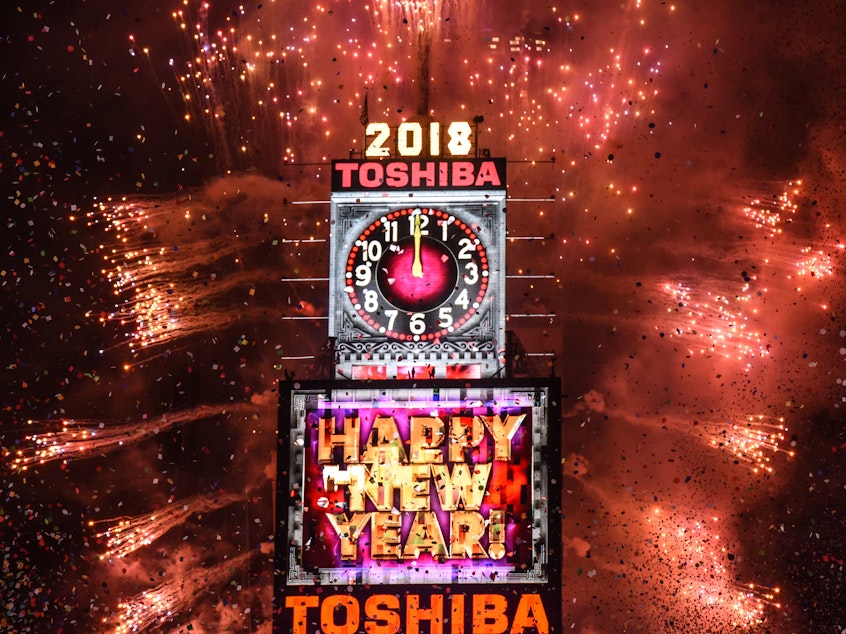Why we count down on New Year's Eve (and why it wasn't always the case)

These days, a New Year's Eve celebration doesn't feel complete without one thing: a countdown.
But that 10, 9, 8, 7, 6, 5, 4, 3, 2, 1 ritual to ring in the new year isn't as old as you might think.
Alexis McCrossen is a history professor at Southern Methodist University and says clock-watching is actually relatively new for Americans.
"We used to celebrate New Year's Day. You woke up on January 1st, you said, 'happy new year', you went to church, perhaps, and maybe you exchanged gifts, and it was a calendar holiday," she said.
"But by the 20th century, it becomes a clock holiday. The calendar is still there, we're still waiting for January 1st, but the clock and midnight become especially important."
Before the 1970s, countdowns were generally associated with bad things.
"In the 1950s, there were atomic bomb tests," McCrossen said. "And the countdown to the dropping of the bomb and then to its detonation was televised and people could hear it. And so this was a kind of apocalyptic countdown."
In 1964, a notorious campaign ad for President Lyndon B Johnson depicted a girl counting petals on a flower until an ominous voice takes over the countdown and a bomb explodes.
A voiceover then rings out: "These are the stakes to make a world in which all of God's children can live or to go into the dark."
Yet the tides were also turning for countdowns.
In 1961, Americans didn't count down to a disaster, but a miracle — the launch of the first crewed U.S. spacecraft. Then we counted down the Apollo moon missions, and we started counting down the Top 40 hits on the radio.
McCrossen notes that some TV announcers in the '60s also started counting down to the new year. But it wasn't until 1979 when the crowd at Times Square in New York first joined in.
"There's this race against time that Americans are constantly running, and so, on the one hand, we feel victorious. When we've won, we've won a leg of that race," McCrossen said.
Today, many will count down to leaving 2021 behind, but McCrossen said the opposite connotation of counting down to apocalypse remain.
"There's this sort of overwhelming sense that there just isn't enough time, there's never enough time," she said.
So with the resurgent pandemic tempering many New Year's celebrations, take heart — there are lots of us balancing all the feelings as we count down to 2022. [Copyright 2021 NPR]
